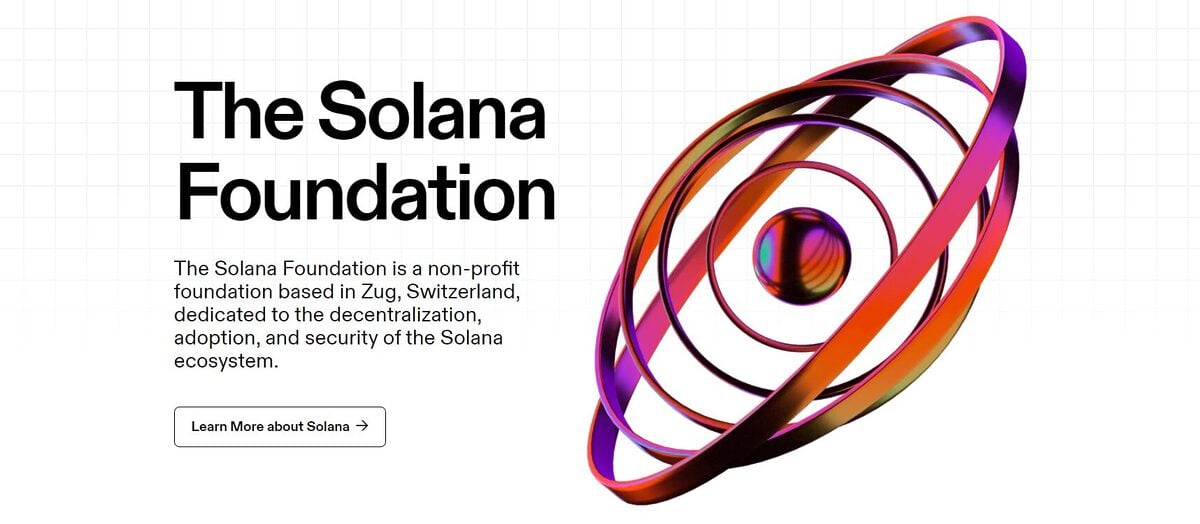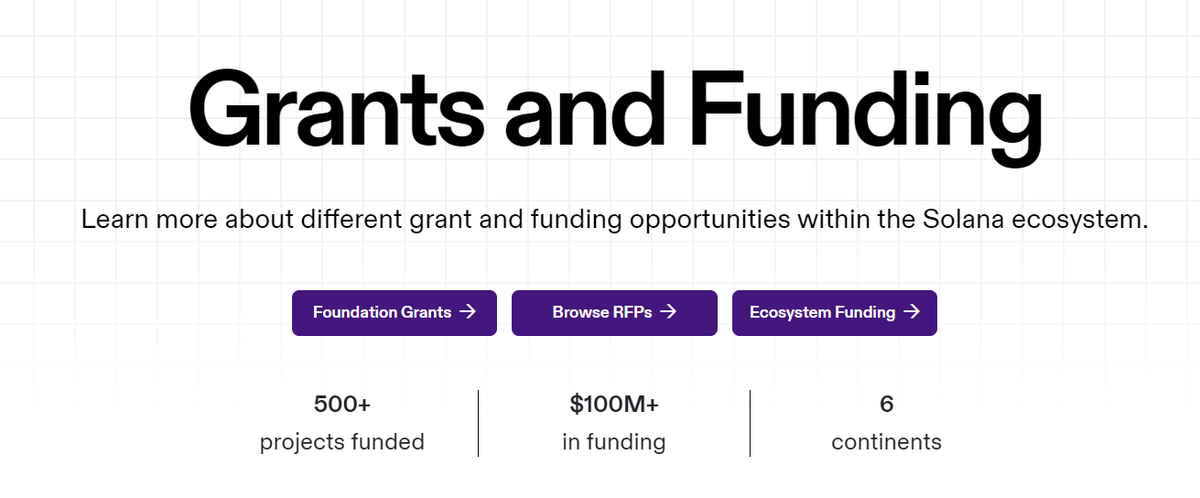
The Solana Foundation is a non-profit organization that aims to improve the Solana ecosystem. While the Solana blockchain is best known for its high performance, it’s often fallen short of its peers regarding decentralization and security.
Even though the Solana network’s decentralization and stability have been improving, and the ecosystem’s thriving DeFi and NFT scene continues to explode, there’s still plenty of work to do.
What is the Solana Foundation, and what is the Switzerland-based entity doing to improve the Solana blockchain?
Table of Contents
What is the Solana Foundation?
Let’s think back to Bitcoin creator Satoshi Nakamoto’s original vision and everything that blockchain technology stands for. Decentralization, censorship resistance, and permissionless custody and asset control are all central pillars of the crypto world.
Sponsored
The Solana Foundation is responsible for ensuring that these virtual data are upheld and that the Solana network remains a fair and distributed blockchain that is safe to use.

A separate body from Solana Labs, the Solana Foundation was officially founded in April 2020, just a few weeks after the launch of the Solana mainnet. The Foundation was given all IPs related to the protocol and tasked with preparing the ecosystem for mass adoption.
Sponsored
Solana co-founder Anatoly Yakovenko was originally named as a Council Member within the Foundation, but he has since relinquished this position to another co-founder, Raj Gokal.
The foundation primarily supports validator node and stake pool operators, enabling them to secure the network effectively. Emerging Web3 businesses can also turn to the Solana Foundation for funding and grants that can help them realize their grand ambitions.
The Solana Foundation’s Goals
The Solana Foundation has grown considerably since it was founded in 2020, but its vision has remained unchanged: To push the expansion of the Solana blockchain and democratize the network for those who wish to use the protocol.
Most of the Solana Foundations’s work falls within one of three categories: Decentralization, Adoption, and Security.
Decentralization
Proof-of-Stake networks like Solana rely on validator nodes and stake pools to secure the network, verify transactions, and create new blocks. In return for these services, node operators earn staking rewards in SOL tokens.
The Solana Foundation provides resources and education supporting validator management, as well as setting certain criteria that ensures node operators are well-distributed geographically. Even if different companies run validators, it’s important that operators are spread out all over the globe.
In addition, the Solana Foundation also runs incentive programs that encourage delegators to commit SOL to stake pools. This helps to decentralize the network and increase its censorship resistance.
Adoption
There’s no point in having a high-performance blockchain network if there are no meaningful apps and services on the protocol. Fortunately, the Solana Foundation has initiatives in place to ensure that the Solana ecosystem continues to grow and provide value to its millions of active users.
The Solana Foundation runs various grants and funding programs encouraging emerging cryptocurrency startups to build products in the Solana ecosystem.
Moreover, the Foundation hosts regular Hackathons that bring together budding developers looking to create sophisticated new protocols during competitive events.
In theory, supporting builders and innovators means the Solana blockchain will be home to a wider variety of products and services than rival networks like Ethereum and Cardano. This is expected to help onboard the masses and make Solana a central hub of activity in the Web3 world.

Since its inception, The Solana Foundation has provided over $100M USD in funding to over 500 projects across six different continents.
Security
Within a Proof-of-Stake blockchain, security and decentralization go hand in hand. A decentralized blockchain is safe and secure, so the Solana Foundation is constantly working to ensure the network is sufficiently distributed to protect it from a superminority attack.
On Solana, the superminority is the metric tracking the number of independent validators who could collectively work together to overthrow a blockchain and act maliciously. The higher superminority score, the more secure the network. This is also called a Nakamoto Coefficient on other networks.
Having as many well-distributed validators and stake pool operators ensures that the Solana network is more decentralized and, therefore, safer to use.
The Solana Foundation: Pros and Cons
The Solana Foundation has a big task ahead of it. With Austin Federa as the Head of Strategy and Raj Gokal sitting on the Council, will the Foundation be able to deliver on its lofty promises? Let’s recap the Pros and Cons.
Pros
- Democratizes validator operation – The Solana Foundation provides plenty of resources and incentives that encourage people to run nodes and commit SOL tokens, thus securing and decentralizing the network.
- Support emerging projects – Having provided over $100M in funding to over 500 crypto startups, the Solana Foundation helps expand the range of products and services on the network.
Cons
- Strict criteria – While it’s great that the Solana Foundation helps DAOS, validators and startups get off the ground, the selection criteria that dictate who gets supported is rather strict, perhaps limiting the effectiveness of the incentives.
On the Flipside
- Solana is far from the only blockchain platform with a dedicated non-profit foundation that supports the network. Rival chains like Cardano and Ethereum have foundations that offer similar services to their respective networks.
Why This Matters
The Solana Foundation is a key part of the Solana ecosystem and wields significant influence. Learning about its role and responsibilities will help you better understand the Solana blockchain.
FAQs
You can buy SOL on top crypto exchanges like Coinbase or Binance.
The Solana Foundation is a non-profit foundation managed by a council. It has no owner.
The Solana Foundation is based in Zug, Switzerland.
